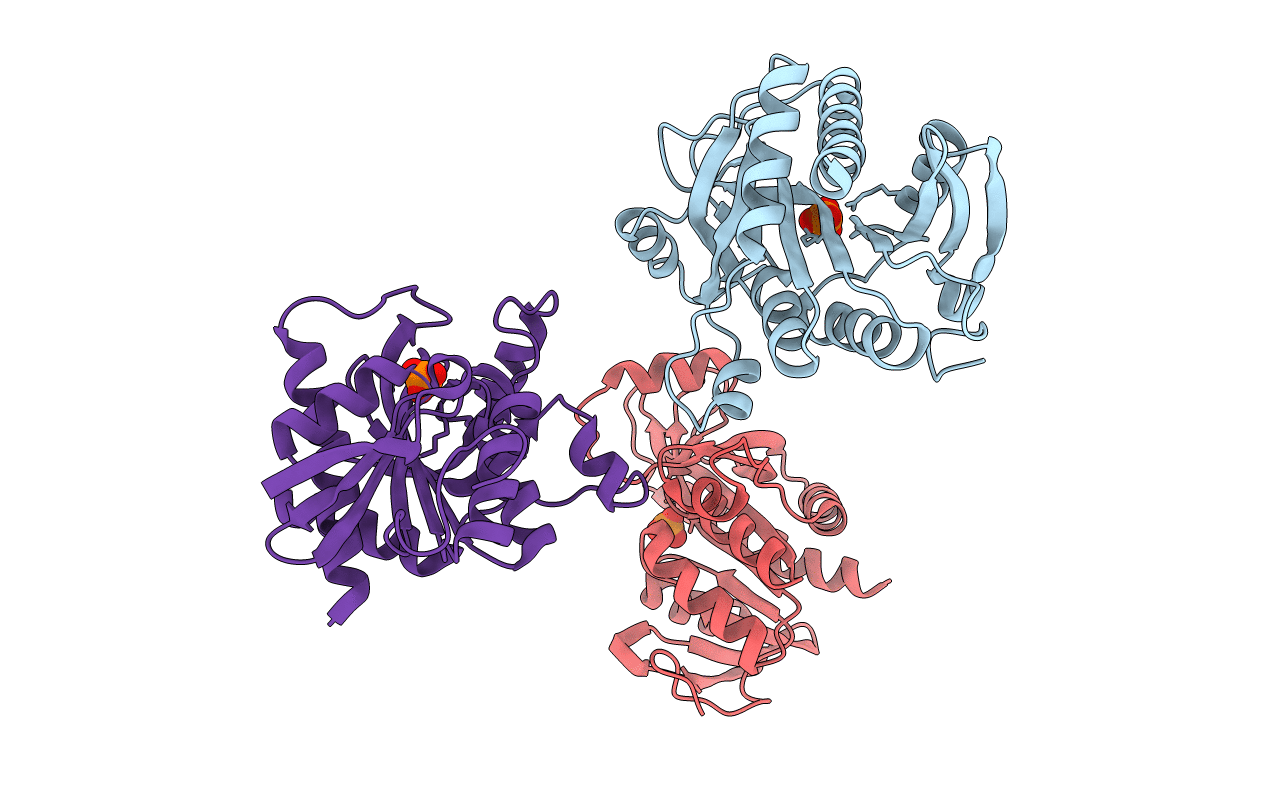
Deposition Date
2003-03-23
Release Date
2004-02-17
Last Version Date
2023-08-16
Entry Detail
Biological Source:
Source Organism(s):
Escherichia coli (Taxon ID: 562)
Expression System(s):
Method Details:
Experimental Method:
Resolution:
2.70 Å
R-Value Free:
0.24
R-Value Work:
0.20
R-Value Observed:
0.20
Space Group:
P 61 2 2


